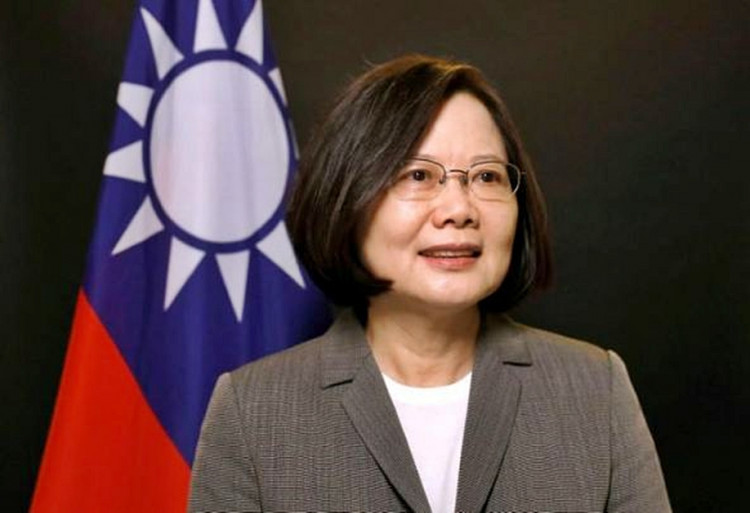Taiwan said it was making "all preparations for war readiness" after China's latest air and naval military drills violated its airspace off its southwestern coast.
In a hastily called news briefing in Taipei on Thursday, Deputy Defense Minister Chang Che-ping said China's continuing series of military drills endangered regional stability and were threats to international aviation.
"We once again say, do not underestimate the military's determination to defend our home," Chang said. "We are confident and capable of defending the country."
The large-scale drills that alarmed Taiwan took place within Taiwan's air defense identification zone between mainland Taiwan and its Pratas Islands, or Dongsha Islands, to the southwest of the Taiwan mainland.
The ministry said the identification zone was violated by Sukhoi Su-30 jet fighters and Chengdu J-10 multirole fighters of the People's Liberation Army Air Force. The warplanes flew in support of a naval exercise conducted by the People's Liberation Army Navy.
China has stepped-up military drills near the Pratas in what Taiwan says is a pattern of intimidation aimed at forcing it to accept China rule. It has also held numerous military exercises near the islands in recent weeks.
China's intentions in staging these air and naval drills is unknown and can't be predicted, said Yeh Kuo-hui, a ranking official at the defense ministry's operations and planning department. Boosting the readiness of Taiwan's armed forces remains a prudent option. "We must make all preparations for war readiness," Yeh said.
The Ministry of Foreign Affairs said Taiwan had shared "information related to China's threat to friendly nations," a reference to the U.S.
Taiwan's President Tsai Ing-wen previously warned the risk of an accidental conflict was rising, saying communication must be maintained with the mainland to reduce the risk of a miscalculation leading to war.
Last Tuesday, Tsai called for an alliance of democracies to defend against "aggressive actions" and protect freedom - a veiled reference to China. She made these remarks after Taiwan branded China's military actions in the South China Sea and Taiwan Strait as threats to regional stability.
Tsai said Taiwan stands at the forefront of defending democracy from "authoritarian aggression." She said defending regional peace and security, however, needed collaborative efforts among other Asia countries.
"The rapid militarization of the South China Sea, increasing and frequent gray-zone tactics in the Taiwan Strait and East China Sea, coercive diplomacy used against countries and corporations...are all destabilizing the Indo-Pacific region," Tsai said.
"It is time for like-minded countries, and democratic friends in the Indo-Pacific region and beyond, to discuss a framework to generate sustained and concerted efforts to maintain a strategic order that deters unilateral aggressive actions."






